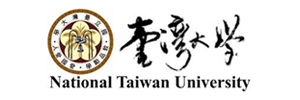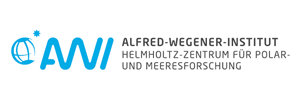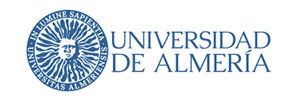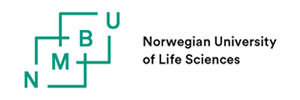Description of the Entity
Association pour la Recherche et le Développement des Méthodes et Processus Industriels (ARMINES) is a private non-profit research and technological organisation funded in 1967, in working partnership with Joint Research Units: Ecoles des Mines: Paris (Mines MINES ParisTech), Albi-Carmaux (Mines Albi-Carmaux), Alès (Mines Alès), Douai (Mines Douai), Nantes (Mines Nantes) and Saint-Etienne (Mines Saint-Etienne). They work to gather public and private personnel to collaborate and perform research contractual activities and academic research training. ARMINES currently shares 48 Joint Research Units (Common Research Centres) with the Ecoles des Mines, while collaborating with ENSTA ParisTech, Ecole Polytechnique, ENPC and Ecole Navale. ARMINES is amongst the top private contract research institutions affiliated to higher education entities, with a total turnover of more than €39,7 million in 2018. ARMINES is also member of EARTO (European Association of Research and Technological Organisation) and the Carnot Institute (IC M.I.N.E.S.). ARMINES, through the Joint Research Units, have been involved in European projects since 1994 (FP4) and obtained, within FP7, 11 projects as a coordinator and 87 as a partner. With 286 research professors, the organisation has published 100 theses and 400 articles or books every year.
The Observation, Impacts, Energy (O.I.E.) is a research group of the Common Centre DR of ARMINES and MINES ParisTech. Comprised of 20 researchers, they focus on the study of renewable energy resources and environmental impacts. O.I.E. contributes to the definition of methods for the evaluation of impacts of energy systems on environment and health, based on a life cycle assessment (LCA) perspective. O.I.E. has been involved in significant number of national and international projects, including
- projects on the environmental assessment of renewable energies such as the French contribution to Task 12 of the Photovoltaic Power Systems Programme of the International Energy Agency (IEA PVPS, 2010-2019), INCER-ACV project (2017-2020) and H2020 project GEOENVI (2018-2021)
- EU-funded projects that exploit interoperability capabilities such as EnerGEO (2009-2013), ENDORSE (2011-2013), ConnectinGEO (2015-2017) and NextGEOSS (2016-2020).
The Centre for Energy Efficiency of Systems (CES), located in Paris, France, is a research laboratory comprised of about 10 senior scientists, 7 post doc or research engineers, 28 Ph.D.s, 14 technicians and administrative personnel. CES focuses its researches both on simulation and tests carried out on test benches. The CES has been involved in improving energy efficiency in buildings, transport and industry since 25 years. The CES develops research with French, European and U.S companies.
Role in the Prodigio Project
ARMINES’s role in the project is related to the exploration of renewable energy resources and their potential risks and environmental impacts, along with its partner MINES ParisTech. Together, they will contribute to the definition of methods for the evaluation of the environmental and health impacts of energy systems based on a life cycle assessment approach.
The Team
Paula Pérez-López is an associate research scientist at the center O.I.E. of MINES ParisTech – PSL/ARMINES, where she coordinates activities on environmental impact assessment of renewable energy systems. She holds a MSc and a PhD in Chemical and Environmental Engineering from the University of Santiago de Compostela, in Spain. She has 10 years of experience in environmental sustainability and Life Cycle Assessment (LCA). Her main work focuses on LCA of renewable energy technologies and marine biotechnology, including microalgae. She has contributed to national and international projects, including the EU FP7 project BAMMBO (Biologically Active Molecules of Marine-Based Origin), and she has collaborated with EU and US institutions on microalgae (AlgaePARC at Wageningen University in the Netherlands, Limerick Institute of Technology in Ireland, Northeastern University of Boston in United States). She currently coordinates a French project on the “Uncertainties in the environmental impact assessment methods of energy production systems through LCA”, funded by the French Environment and Energy Management Agency (ADEME). She also co-supervises a PhD thesis on the sustainability life cycle assessment of electric mobility scenarios.
Andriamahefasoa Rajaonison is a PhD student at the center O.I.E. He holds a MSc in Civil Engineering and a MSc in Energy Systems. His previous work has focused on modelling and environmental assessment of pumping systems, as well as on anaerobic co-digestion. In PRODIGIO, he contributes to the sustainability assessment of energy production from anaerobic digestion of algae. To do so, he will address potential impacts of PRODIGIO production system and its benefits compared to a conventional system, including environmental, social and economic dimensions.
Mélanie Douziech is a tenure track researcher at the center O.I.E. She holds a MSc in Environmental Engineering from the Swiss Federal Institute of Technologies in Zurich, Switzerland and obtained a PhD in Environmental Science from the Radboud University in Nijmegen, the Netherlands. Throughout her studies, she developed an expertise in life cycle assessment and the quantification of ecotoxicological impacts of chemicals on the freshwater environment. She investigated chemical removal efficiencies in activated sludge wastewater treatment plant using mixed-effects model, of which she received the best publication award from the Society of Environmental Toxicology and Chemistry (SETAC) in 2018. At O.I.E. center, her main research has been focused on the development of parametrized simplified models to estimate the environmental impacts of renewable energy technologies.
Raphaël Jolivet is an IT engineer with more than 15-year experience. He has worked in both academic and industrial environments and has deep knowledge in back-end (J2EE, Python, Scala …) and front-end (ReactJS, Typescript…) technologies. His current activity aims to use his technical skills and experience to provide solutions for society driven projects related to ecology, energy transition, social and solidarity economy, etc. Among recent achievements, he has recently developed a specific library in Python to facilitate the implementation of parameterized models in LCA and the analysis of effects of variability and uncertainty in LCA results.
Thierry Ranchin is a Full Professor and Head of the Center O.I.E. of MINES ParisTech – PSL/ARMINES, whose expertise includes the evaluation of renewable energy resources. He holds a PhD in Engineering Science from the University of Nice-Sophia Antipolis. His research fields include image processing, wavelet analysis, multiresolution analysis and satellite data fussion applied to renewable energy source evaluation.
Rodrigo Rivera Tinoco is a research officer and group leader at MINES ParisTech. He obtained his PhD on Process engineering MINES Paristech in 2009. He has experience on several projects at national and international level, including at the Commissariat à l’Energie Atomique in France, at Energy Research Centre of the Netherlands, and private sector activities. In the beginning of 2014, he joined ARMINES and his valuable experience on international projects enabled him to coordinate French activities including EIT-KIC Innovation, Industrial Symbiosis, Carbon dioxide recycling activities, high temperature electrolysis systems as well as development of novel technologies on natural gas and energy storage and electrolytic hydrogen production.









